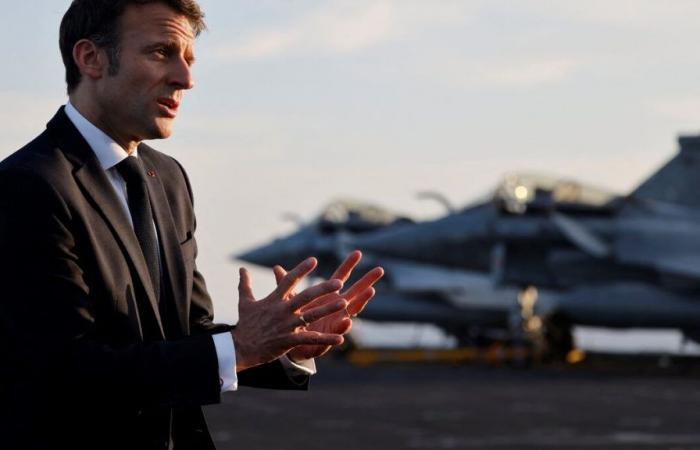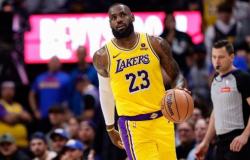Emmanuel Macron does not rule out sending French troops to Ukraine, but could he really do so if the National Rally (RN) obtains an absolute majority in the legislative elections? The president’s title of “chief of the armed forces” is “honorary”, said Marine Le Pen in Le Télégramme this Wednesday evening… before qualifying her remarks this Thursday morning on X. “Without calling into question the reserved domain of the president of the Republic, when it comes to sending troops abroad, the Prime Minister has, through budgetary control, the means to oppose it,” she argued.
We take stock of what it really is with the help of Bruno Daugeron, professor of public law at Paris Cité University and author of the work “Constitutional Law” (Presses Universitaires de France).
What does the Constitution say?
In article 15, we read that “the President of the Republic is the head of the armies”. In this capacity, “he chairs the councils and higher committees of National Defense”. That being said, “the Government determines and conducts the policy of the Nation” and “it has the administration and the armed force”, indicates article 20. And the following provides that the Prime Minister “is responsible for national defense. » Clearly, this theme is, on paper, a shared responsibility between the head of state and the government.
Is “Chief of the Armies” really only honorary?
No. “In practice, and even during periods of cohabitation, the role of the Head of State in matters of defense is predominant,” argues the Constitutional Council, without further detail or providing concrete examples. ” When we say Army chief, this title indeed seems honorary. But you have to read the rest of article 15! The Constitution and the Defense Code give a certain number of prerogatives to the Head of State on these subjects, in particular to use nuclear weapons,” replies Bruno Daugeron. “Since we cannot do without him, he is essential,” he adds.
But is Emmanuel Macron really the only one who decides?
No more! To understand, you have to read – this time – article 19 of the Constitution. The acts decided by the head of state “are countersigned by the Prime Minister”, with a few exceptions, which do not include article 15.
“The new thing about the 1958 Constitution is that you have a certain number of acts, such as dissolution, which exempt the President of the Republic from the countersignature of the Prime Minister. He can therefore decide on his own to dissolve the National Assembly! But he could not decide on his own to send troops, for example,” explains Bruno Daugeron. Beyond four months, the agreement of Parliament would also be required to continue the military operation.
In other words, when it comes to defense and the army, the green light from the Head of State is a necessary condition… but not necessarily sufficient (and this has nothing to do with the “budgetary control” that we are talking about). Marine Le Pen). With one possible exception: the use of nuclear weapons, which a president could decide alone to trigger. “Its role is then fundamental, but it is not clearly stated that it can do without the countersignature of the Prime Minister,” adds the specialist.






